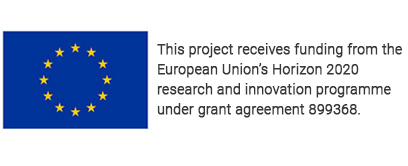EPIQUS
Electronic-photonic integrated quantum simulator platform
H2020-FETOPEN-2018/2020

Project Abstract
Project Abstract
EPIQUS aims to demonstrate a cheap, easy-to-use, performant Quantum Simulator (QS) based on full integration of silicon nitride photonics with silicon electronics. The core objective of EPIQUS is to set a cornerstone technology – demonstrate the first breakthrough device - which will simulate quantum mechanical problems in a compact device operating at ambient temperatures.
Our vision is to develop a Quantum Simulator by bringing onto a unique semiconductor platform the mature silicon microelectronic (CMOS, digital) and the silicon nitride quantum micro-photonic functionalities. Within EPIQUS we will develop a 3D-integrated quantum simulator hardware, where (1) a photonic quantum interference circuit, hosting (1a) scalable entangled photon sources (pumped by a NIR pulsed diode laser to produce on-chip photon pairs via nonlinear four wave mixing), (1b) the state preparation stage and (1c) the 16 qubit reconfigurable quantum interference circuit, will be monolithically integrated on the same Si chip with (2) scalable arrays of single photon avalanche detectors (Silicon SPADs) operating at ~ 850nm and at room temperatures. Around this, our consortium will build an integrated system, in which on the “software level” a quantum algorithm will sustain the quantum simulation results from the hardware. In this last, a custom Analog chip will control the QS module by managing the pulsed pump laser, phase shifters (needed to reconfigure the QS) and the SPADs in order to control actively the quantum optical circuit. Finally, the output data will be handled by the digital chip to feed the software algorithm. EPIQUS will envision scalability up to 50 qubits using the proposed breakthrough technology.
The EPIQUS consortium will be based on several groups from EU countries and one non-EU partner with diverse expertise, ranging from material, device, photonic and electronic circuit engineering, microfabrication technology, quantum optics and
spectroscopy, information technologies.
